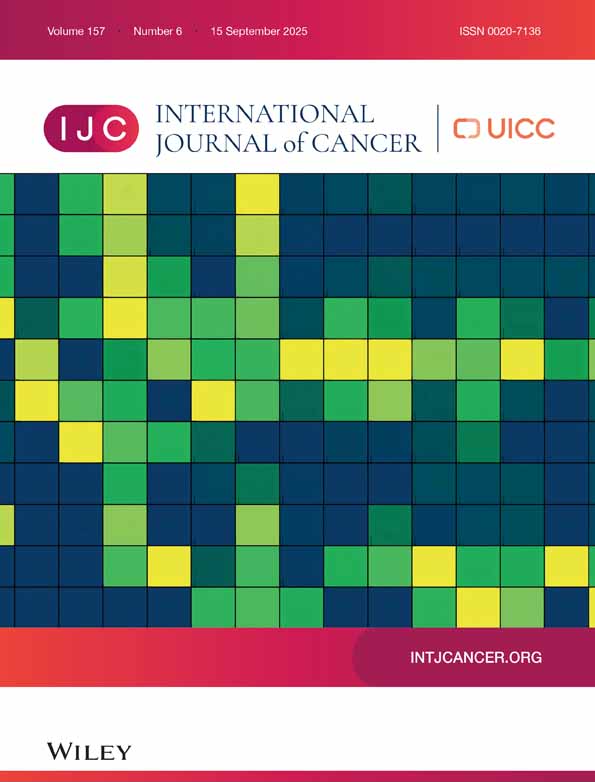Detection of breast cancer cells in the peripheral blood is positively correlated with estrogen-receptor status and predicts for poor prognosis
Abstract
We investigated whether detection of cytokeratin-positive (CK+) cells in the peripheral blood (PB) of breast cancer patients before chemotherapy could be a prognostic factor. Blood from a total of 92 breast cancer patients was evaluated for the presence of CK+ cells. Blood samples were collected before chemotherapy. Patients entered in the study included: neoadjuvant (n = 25), adjuvant (n = 42) and metastatic (n = 25). Blood samples (10 ml) were centrifuged using a double density-gradient to recovering the mononuclear cell (MNC) and granulocyte cell (GC) fractions. Subsequently, positive immunomagnetic cell separation was carried out to isolating CK+ cells. The enriched cell fraction was cytocentrifuged and then immunocytochemically labeled using an anti-cytokeratin antibody. Our results indicated that breast tumor cells sediment with both MNC and GC fractions. We therefore recommend examination of both fractions in all enrichment protocols. CK+ cells in PB were identified in 57 of 92 (62%) patients when MNC and GC fractions were assessed (range = 1–61 cells, median = 8). No CK+ cells were detected in blood samples of 16 healthy donors. There were significant differences in the presence of CK+ cells according to estrogen receptor expression (p = 0.049), and lymph node status (p = 0.033), but not to the age, menopausal status, type of patient (neoadjuvant, adjuvant or metastatic), TNM stage, histological type, progesterone receptor expression, c-erbB2 expression, p53 expression or Ki67 expression. Regarding the relationship between tumor size (T) and the presence of CK+ cells, a borderline significant trend was observed (p = 0.07). The median follow-up of the patients was 21 months and statistical analysis (Kaplan-Meier analysis) showed that using the method we present, the detection of CK+ cells in PB before starting the chemotherapy in breast cancer patients was significantly correlated with both progression-free survival (p = 0.058) and overall survival (p = 0.003). In conclusion, the present study suggests that detection of CK+ cells in PB before chemotherapy might identify breast cancer patients with poor prognosis. © 2003 Wiley-Liss, Inc.




